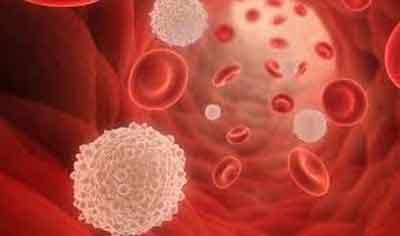- Home
- Editorial
- News
- Practice Guidelines
- Anesthesiology Guidelines
- Cancer Guidelines
- Cardiac Sciences Guidelines
- Critical Care Guidelines
- Dentistry Guidelines
- Dermatology Guidelines
- Diabetes and Endo Guidelines
- Diagnostics Guidelines
- ENT Guidelines
- Featured Practice Guidelines
- Gastroenterology Guidelines
- Geriatrics Guidelines
- Medicine Guidelines
- Nephrology Guidelines
- Neurosciences Guidelines
- Obs and Gynae Guidelines
- Ophthalmology Guidelines
- Orthopaedics Guidelines
- Paediatrics Guidelines
- Psychiatry Guidelines
- Pulmonology Guidelines
- Radiology Guidelines
- Surgery Guidelines
- Urology Guidelines
New method discovered to restore WBC function in septic patients

Washington : Findings were published in the journal of Leukocyte Biology. Sepsis is the presence in tissues of harmful bacteria and their toxins, typically through infection of a wound.
According to research, treating the white blood cells of sepsis patients with antibodies that block programmed cell death-1 (PD-1) and programmed cell death ligand (PD-L1) molecules may restore their function and ultimately their ability to eradicate deadly bacteria.
"We hope that this study will lead to a better understanding of why patients with sepsis are often unable to successfully eradicate invading micro-organisms," said study author Andriani C. Patera.
"Furthermore, we hope that this study will stimulate new therapies to treat sepsis based on stimulating various components of the immune system," Patera added.
For the study, scientists conducted a prospective study in which blood from patients with life-threatening infections was obtained and white blood cells were tested for their ability to and control bacterial infection.
The white blood cells from patients with sepsis were compared to white blood cells from critically ill patients who did not have infections.
White blood cells from the patients with sepsis were severely impaired compared to non-septic patients, and PD-1 and PD-L1 were identified as key mechanisms responsible for white blood cell impairment.
"There is increasing evidence for immune dysfunction in sepsis. Immune dysfunction is now therapeutically correctable by targeting PD-1 in chronic diseases such as cancer and chronic infections," said John Wherry deputy editor of the Journal.
"These new data highlight the potential opportunity to treat a devastating acute and rapidly progressing inflammatory disease with an approach learned and tested in humans in immune oncology," he added.

Disclaimer: This site is primarily intended for healthcare professionals. Any content/information on this website does not replace the advice of medical and/or health professionals and should not be construed as medical/diagnostic advice/endorsement or prescription. Use of this site is subject to our terms of use, privacy policy, advertisement policy. © 2020 Minerva Medical Treatment Pvt Ltd